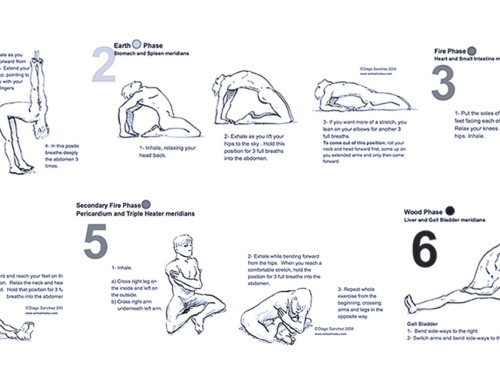There are definite differences between these excellent fats, so here is some information on each. You choose whether you like ghee or coconut oil more, or how to use both liberally, as many do.

A little about Ghee
Humans ate no dairy until we began to domesticate animals instead of hunting them. We soon learned that fresh sheep, goat, horse or yak milk had some benefits. It can be fermented to keep longer than fresh, and it’s nutritious and filling when raw.
It’s only been 13,000 years since we started milking domesticated animals, so it’s very recent in our evolutionary history. It may have been difficult to adapt to animal milk at first. But somehow, we persisted.
It is believed that 30% of humans have now evolved to accept dairy. This is an exceptionally fast evolution, and indicates there is something in dairy that we really, really want. And that is the FAT from dairy. (The other 70% of us should generally avoid dairy, except for ghee – see more below).
Higher fat diets are what we have evolved to demand
Enter butter fat…. Rich in Vitamins A, D and K (if pastured-raised), butter fat is a bonanza of goodness. Ghee is pure butter fat. Like all 100% pure fats, it has no protein, solids or sugars.
Ghee is butter that has had the moisture, proteins and sugars removed. Lacking water, it doesn’t spatter when cooking. Lacking starch and protein, it doesn’t burn easily.
Butter, on the other hand, still has traces of whey and casein proteins, as well as lactose (sugar). For many this creates an “allergy” or a digestive problem.
The immune system’s job is to target foreign proteins such as viruses and bacteria. It will also attack the proteins in food, and those in our own body (auto-immune disorders). But it will not attack fat. So even highly dairy-intolerant people can consume ghee liberally and have no arthritis, gas, bloating or immune antibodies.
Bottom line for Ghee: rich in Vitamins, a familiar and desirable taste and mouth feel, and no antibodies as we might have to butter, cream or other dairy. Great for cooking and very satisfying.
What about Coconut Oil?
Humans have eaten coconuts from the beginning of time. We rarely have immune or allergy problems with it. And it has anti-infective and healing properties beyond its caloric value.
Another advantage of coconut oil is its highly digestible structure, primarily Medium Chain Triglycerides – MCTs (other saturated fats are mostly Long Chain). It takes little action from bile and digestive enzymes to break down coconut oil, making it a great food for those with no gall bladder or poor digestion such as the elderly or sick.
If you’re taking coconut oil as a supplement due to its remarkable health benefits you may want to consider the benefits of MCT oil, which derives from coconut oil and offers many cognitive, heart and digestive benefits.
On the other hand, coconut oil has none of the much-cherished Vitamins A, D and K that ghee or pastured lard have. This is a big “minus”.
Coconut oil also is an acquired taste. There are certain foods that just don’t work with its sweetness, and many folks in general don’t like the taste or smell but tolerate it because it’s in so many recipes. Cheaper grades of coconut oil have lighter taste and still offer the other benefits of the oil.
SHARE THIS ARTICLE
Ghee vs. Coconut Oil
1. Ghee has a Higher Smoke Point
Ghee’s smoke point (you know when the pan starts smoking and you get that acrid smell – that means you have released harmful free radicals) – is 252°C, which is higher than coconut oil’s smoke point of 177°C.
2. Ghee is rich in Vitamin A, D, E, K2 and CLA
When sourced from grass fed cows, ghee is chock full of Vitamin K2 (one of the fat soluble vitamins in the same class as Vitamin A, D, and E) and is one of the highest natural sources of CLA (Conjugated Linoleic Acid – an antioxidant with anti-viral properties).
Deficiency of K2 is rampant in our society due to our lack of grass fed animal fats in our diet and this has implications on heart and bone health and cancer and probably some other serious health conditions that are only just now being studied (read more).
Coconut oil does not contain K2 or CLA.
3. Both are suitable for those with a dairy intolerance
Ghee is made from butter which is considered dairy, however, it is clarified through a long slow process to remove all moisture, milk solids, and impurities. Many who are lactose or casein intolerant have no issue with ghee. Many on the Paleo diet also consume ghee.
4. Ancient wisdom recognition as essential
The medical science of India, Ayurveda, views ghee as an essential part of a balanced diet, and considers it to be the best fat one can eat. Many herbal preparations use ghee as a carrier oil because herbs and spices coated in ghee can easily penetrate lipid-based cell walls in the body, where they can provide the most benefit.
5. The magic of butyric acid
Ghee is rich in natural antioxidants, composed primarily of short chain fatty acids, and its cholesterol fraction resists oxidation. These short chain fatty acids are metabolized and used for incredible energy immediately by the liver. These also come into play to help to control metabolism, inflammation, and stress (source).
Conclusion: keep and use both. Try different brands in different ways.
Clearly coconut oil has benefits as well being full of healthy lauric acid and medium chain fatty acids. The choice comes down to taste and individual health conditions.
You might value the buttery flavor of ghee over the coco-nutty flavor of coconut oil on your cooked food. You might prefer to use coconut oil more for baking and ghee for cooking for this reason.
Sources:
Which Is Better – Ghee or Coconut Oil? by Beverly Meyer, July 12th 2014, OnDietAndHealt.com
5 Ways Ghee is More Awesome Than Coconut Oil by Lindsey Gremont, HomeMadeMommy.net
This text is for informational purposes only. Before making changes to your diet or lifestyle, please consult your physician.







Leave a Reply